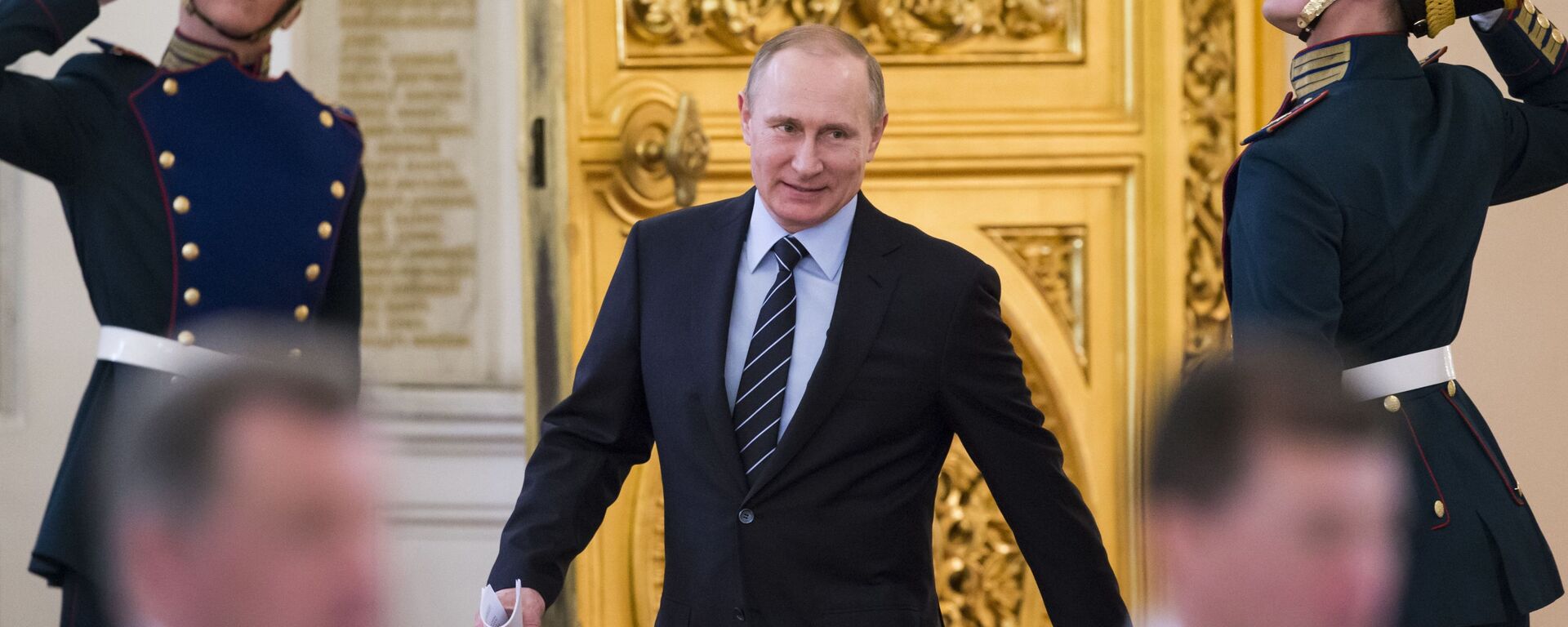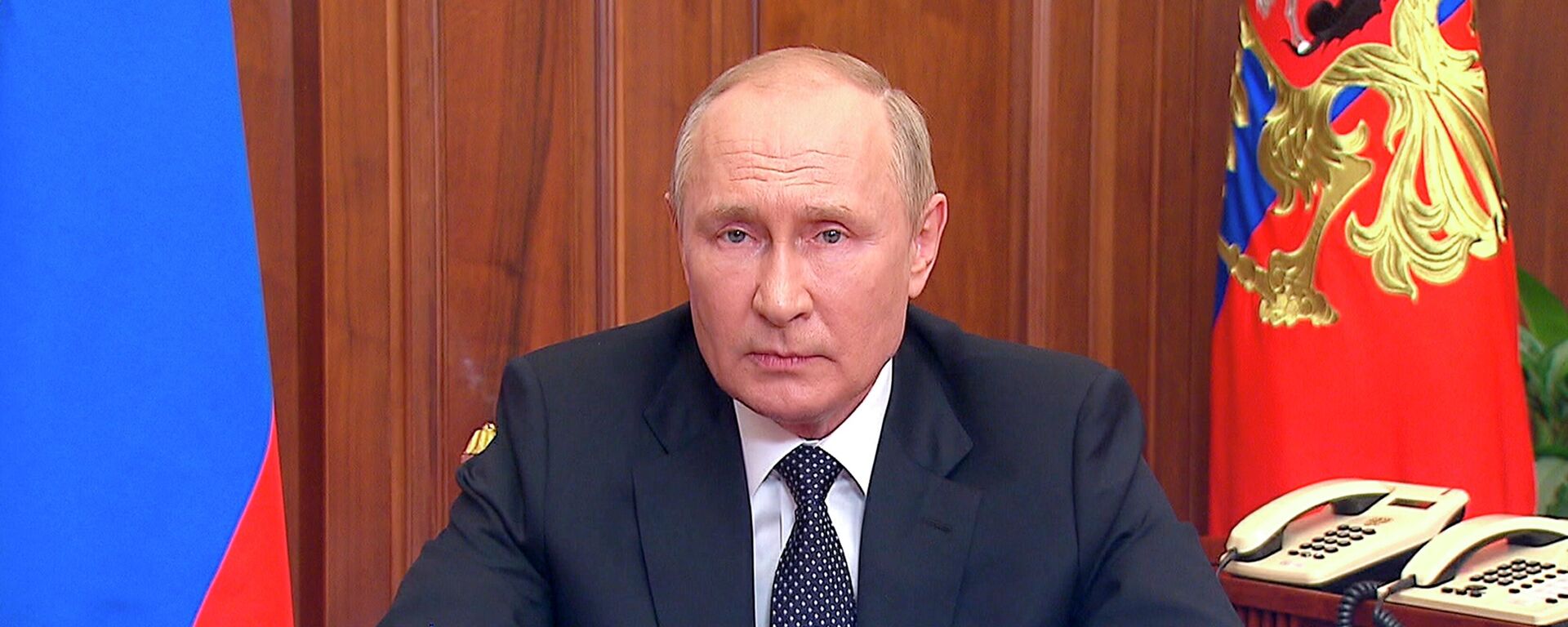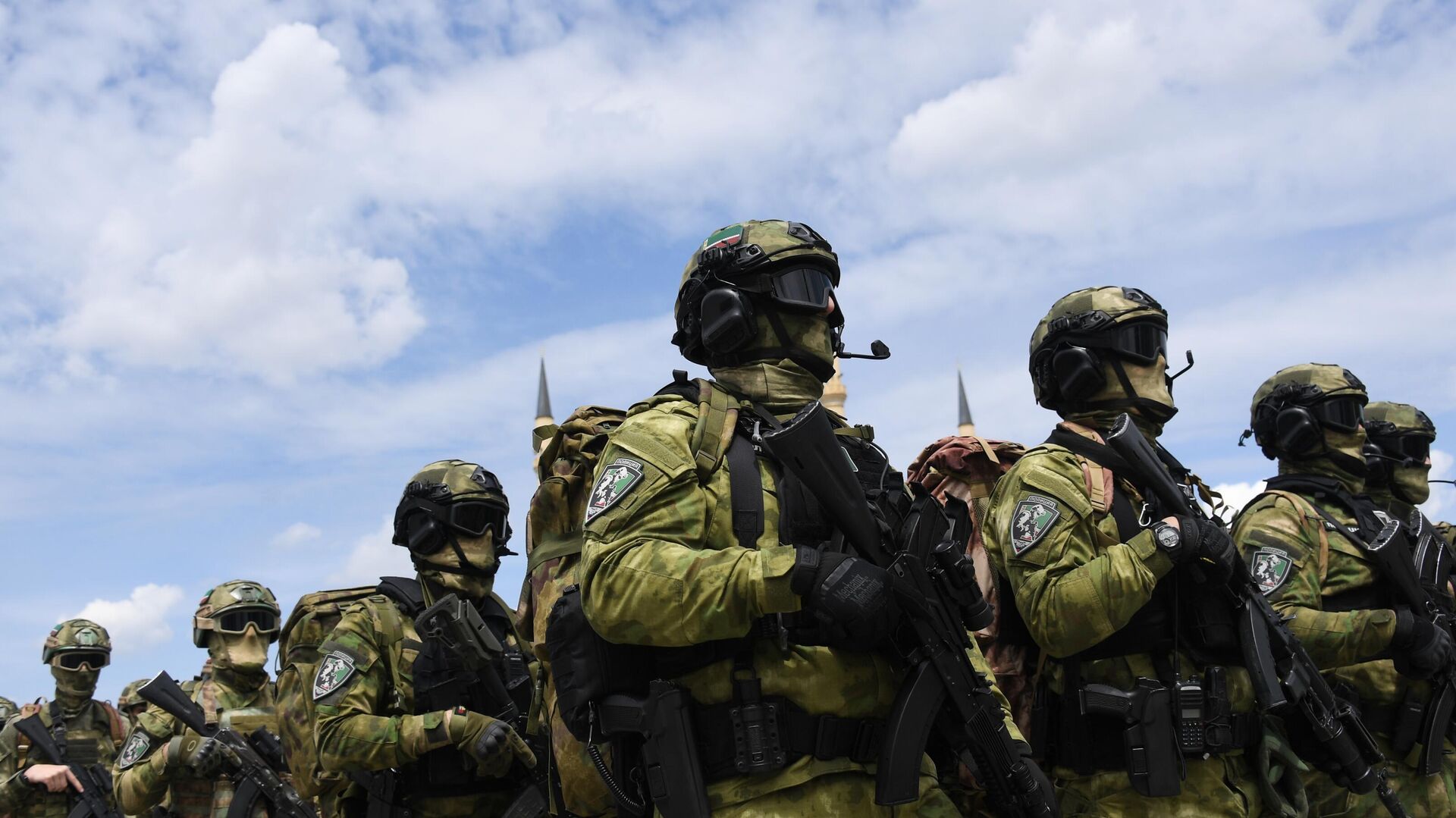https://sputnikglobe.com/20220922/argentine-analysts-russias-mobilization-is-political-reply-to-wests-stance-over-ukraine-1101068279.html
Argentine Analysts: Russia's Mobilization is Political Reply to West's Stance Over Ukraine
Argentine Analysts: Russia's Mobilization is Political Reply to West's Stance Over Ukraine
Sputnik International
The partial mobilization called by Russia is a way to "reinforce" the referendums announced by the republics of Donetsk and Lugansk and the provinces of... 22.09.2022, Sputnik International
2022-09-22T03:52+0000
2022-09-22T03:52+0000
2022-10-19T20:57+0000
russia
ukraine crisis
mobilization
limited mobilization
nato
us
russia's special operation in ukraine
ukraine
https://cdn1.img.sputnikglobe.com/img/07e6/09/16/1101068699_0:0:3215:1808_1920x0_80_0_0_bf87e449d95b4200a75c439c0c295e87.jpg
The expert, a doctor in International Relations, considered that the partial mobilization responds to the fact that, for Russia, "it is an affront that Ukraine continues to threaten or try to return these territories," so it is necessary for "the political authorities to respond to that."According to the analyst, the call for reservists can be explained by the need for Russia to protect Donetsk and Lugansk in the face of the possibility that "Ukraine may retaliate" before the referendums.Another Argentine analyst Martin Rodriguez Osses told Sputnik that the Kremlin's decision to initiate a partial mobilization also responds to the need, in the event that the referendums are favorable to incorporation with Russia, to provide the Donbass territories with "the resources that they could not give them before." Both analysts agreed that behind Putin's position is Russia's concern about NATO's involvement in the conflict.According to Montes, NATO bears "a great deal of responsibility" for the conflict in Ukraine, even before the start of the special military operation on February 24. "Between December 2021 and February 2022, the West spurred Ukraine on, and Russia responded to it," he said.According to Montes, now "the ball is again on the side of the West," given that "if the West reacts to Putin's speech with the same vehemence and negativity as in the period from December to February, what we are going to see is an escalation." Rodriguez Osses, for his part, noted that if the 300,000 Russian-conscripted reservists focus, as Putin has stated, solely on strengthening the positions already held by the Russian army, then NATO's position cannot be expected to change, because the alliance is not going to help with anything more than arms deliveries to Kiev forces.Russia began a special military operation in Ukraine on February 24 in response to a request for assistance from the separatist republics of Donetsk and Lugansk to protect them from Ukrainian forces' escalating onslaught. The operation, according to the Russian Ministry of Defense, is only focused on Ukrainian military infrastructure.
https://sputnikglobe.com/20220921/checkmate-putins-address-marks-game-over-for-kievs-us--nato-backers-analysts-say-1101056726.html
https://sputnikglobe.com/20220921/putin-wests-goal-is-to-weaken-disunite-and-destroy-russia--1101028273.html
russia
ukraine
Sputnik International
feedback@sputniknews.com
+74956456601
MIA „Rossiya Segodnya“
2022
News
en_EN
Sputnik International
feedback@sputniknews.com
+74956456601
MIA „Rossiya Segodnya“
Sputnik International
feedback@sputniknews.com
+74956456601
MIA „Rossiya Segodnya“
russia, ukraine crisis, mobilization, limited mobilization, nato, us, ukraine
russia, ukraine crisis, mobilization, limited mobilization, nato, us, ukraine
Argentine Analysts: Russia's Mobilization is Political Reply to West's Stance Over Ukraine
03:52 GMT 22.09.2022 (Updated: 20:57 GMT 19.10.2022) Kirill Kurevlev
Managing Editor
The partial mobilization called by Russia is a way to "reinforce" the referendums announced by the republics of Donetsk and Lugansk and the provinces of Kherson and Zaporozhye in the face of a possible Ukrainian military response, Argentine analyst Marcelo Montes told Sputnik.
The expert, a doctor in International Relations, considered that the partial mobilization responds to the fact that, for Russia, "it is an affront that Ukraine continues to threaten or try to return these territories," so it is necessary for "the political authorities to respond to that."
According to the analyst, the call for reservists can be explained by the need for Russia to protect Donetsk and Lugansk in the face of the possibility that "Ukraine may retaliate" before the referendums.
Another Argentine analyst Martin Rodriguez Osses told Sputnik that the Kremlin's decision to initiate a partial mobilization also responds to the need, in the event that the referendums are favorable to incorporation with Russia, to provide the Donbass territories with "the resources that they could not give them before."
Rodriguez Osses stressed that, in the event of joining Russia, “an attack by Ukraine on this territory will trigger a different type of response because a 'red line' will be crossed."
Both analysts agreed that behind Putin's position is Russia's concern about NATO's involvement in the conflict.
For Rodriguez Osses, this was made clear in the speech by the Russian president on September 21, when "he clearly identified Washington, London and Brussels [EU headquarters] as the main actors in the conflict, displacing Ukraine, which he sees as the scene."

21 September 2022, 15:39 GMT
According to Montes, NATO bears "a great deal of responsibility" for the conflict in Ukraine, even before the start of the special military operation on February 24.
"Between December 2021 and February 2022, the West spurred Ukraine on, and Russia responded to it," he said.
"Today, the West again bears the responsibility, because the European Union could put pressure on Kiev to negotiate, and if it didn't, Washington would have to do it. However, what the West is doing is the opposite, trying to derail the negotiating efforts," the expert remarked.
According to Montes, now "the ball is again on the side of the West," given that "if the West reacts to Putin's speech with the same vehemence and negativity as in the period from December to February, what we are going to see is an escalation."
Rodriguez Osses, for his part, noted that if the 300,000 Russian-conscripted reservists focus, as Putin has stated, solely on strengthening the positions already held by the Russian army, then NATO's position cannot be expected to change, because the alliance is not going to help with anything more than arms deliveries to Kiev forces.
Russia began a special military operation in Ukraine on February 24 in response to a request for assistance from the separatist republics of Donetsk and Lugansk to protect them from Ukrainian forces' escalating onslaught. The operation, according to the Russian Ministry of Defense, is only focused on Ukrainian military infrastructure.

21 September 2022, 06:05 GMT




